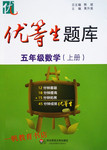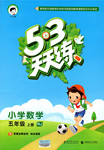题目内容
【题目】What is the purpose of reading or studying? If you can't remember what you read or study, it will be a waste of time. 【1】 One useful aid that does help you remember what you study is to have a specific purpose or reason for reading.
Why does a clerk in a store go away when your reply to her offer to help is, "No, thank you, I'm just looking."? Both you and she know that if you aren't sure what you want, you are not likely to find it. But suppose you say instead, "Yes, thank you. I want a pair of sun glasses." She says, "Right this way, please.” It’s quite the same with your studying. If you choose a book, "just looking" for nothing in particular, you are likely to get just that—nothing. 【2】 Your reasons will vary; they will include reading or studying "to find out more about", "to understand the reasons for" and "to find out how".
【3】 Before you start to study, you say to yourself something like this, "I want to know why Stephen Vincent Benet happened to write about America".Because you know why you are reading or studying, you relate the information to your purpose and remember it better.
Reading is not one single activity. 【4】 As you read, you take in ideas rapidly and accurately. But at the same time you express your own ideas to yourself as you react to what you read. You have a kind of mental conversation with the author.
This additional process of thinking about what you read includes evaluating it, relating it to what you already know, and using it for your own purposes. 【5】 One part of critical reading, as you have discovered, is distinguishing between facts and opinions. Facts can be checked by evidence. Opinions are one's own personal reactions.Another part of critical reading is judging sources. Still another part is drawing accurate inferences.
A. This is an effective studying way.
B. In other words, a good reader is a critical reader.
C. You remember better when you know what you’re reading.
D. At least two important processes go on at the same time.
E. It is important for students to have a positive attitude to their study.
F. But if you do know what you want, you are almost sure to get it.
G. Perhaps you have already discovered some good ways to keep yourself from forgetting
【答案】
【1】G
【2】F
【3】A
【4】D
【5】B
【解析】
【1】G分析推断题。根据前一句 If you can't remember what you read or study, it will be a waste of time.如果你记不得你所读或者学习的东西,这就是浪费时间了。后一句One useful aid that does help you remember what you study is to have a specific purpose or reason for reading.一个有用的方法能够确实帮助你记住你所学的东西,就是呆着一个特定的目的或者愿意来阅读。故所缺句子和记忆有关,故选G
【2】F分析推断题。该句前一句 If you choose a book, "just looking" for nothing in particular, you are likely to get just that—nothing如果你选择了一本书,“只是看看”而不是在看什么特别的东西,你很可能什么也得不到。下一句应该是和这有关的,故选F
【3】A分析推断题。根据该段剩下的两句Before you start to study, you say to yourself something like this, "I want to know why Stephen Vincent Benet happened to write about America".Because you know why you are reading or studying, you relate the information to your purpose and remember it better.在你开始学习之前,你可以对你自己这么说:我想要知道为什么斯蒂芬·文森特·本特开始写美国的一些事情。因为你知道为什么你在阅读或者学习,你会更好的将那些信息更好得联系上你的目的同时能更好的记住他们。这是介绍一个比较合适的学习方式,故选A
【4】D分析推断题。根据该句前一句Reading is not one single activity.阅读不是一个单一的活动。可以推断出应该选D.至少同时进行两项活动。
【5】B分析推断题。根据该句后一句One part of critical reading, as you have discovered, is distinguishing between facts and opinions. 你会发现批判性阅读的一部分,就是辨明真相和观点。故选B

 优等生题库系列答案
优等生题库系列答案 53天天练系列答案
53天天练系列答案